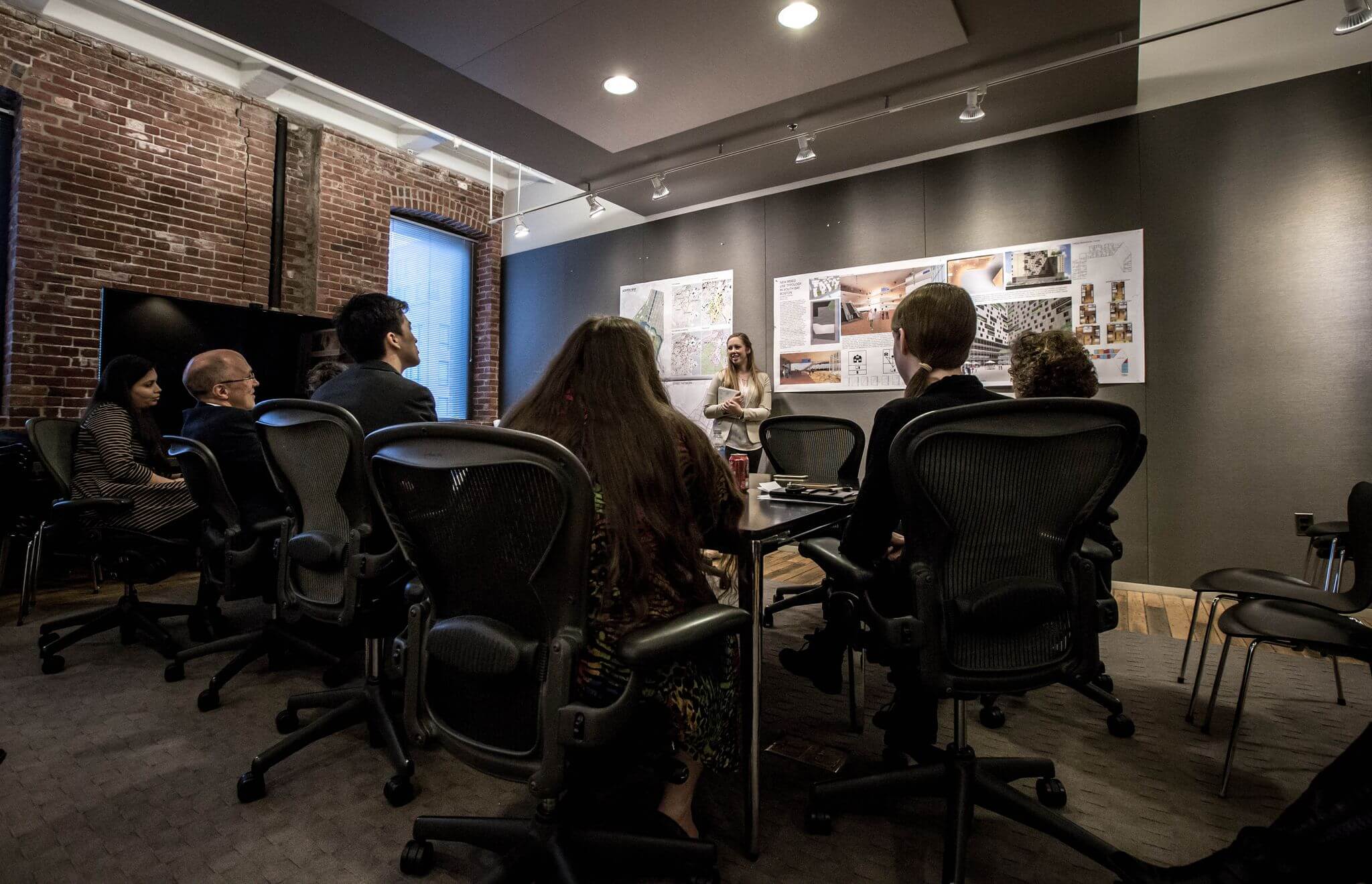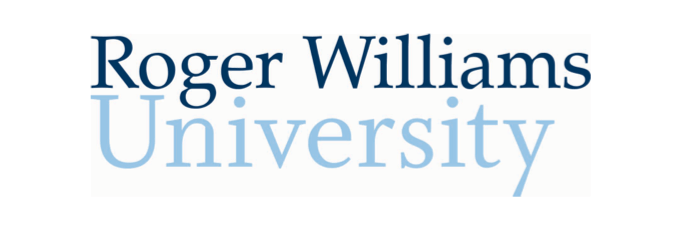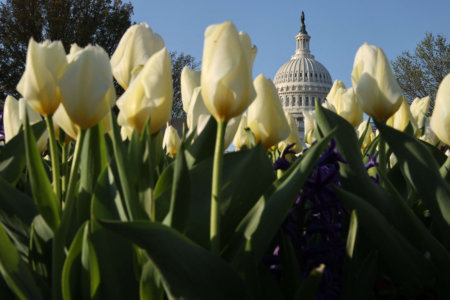Syrian-born Abdullah Soufan’s love for architecture bloomed in high school. His father, aunt, and uncle were professionals in the field. This exposure fuelled his urge to follow in the footsteps of his older brothers –– both of whom were studying in the US. Research led him to realise that Roger Williams University (RWU) was where he wanted — and needed — to be.
The feeling was mutual. The School of Architecture, Art and Historic Preservation (SAAHP) even offered him a generous scholarship that lifted many burdens. For Soufan, however, what sealed the deal was that RWU had both a programme and a faculty that could collectively provide him with the education of his dreams.
“Firstly, they have a strong, accredited Master of Architecture programme, which is the perfect first step to becoming a licensed architect,” he shares.
The SAAHP has achieved all 46 conditions for accreditation by the National Architectural Accrediting Board. Most notably, it has met five of those criteria with distinction. Few schools have achieved this level of distinction by the NAAB.
Accolades aside, support spoke volumes to Soufan. “What truly solidified my choice was the diversity of the architecture faculty, which was very important to me as a foreigner –– to have people around me that could understand what international students go through in a new country,” he explains.
RWU provides the ideal environment for progress. It is located between Boston and New York City –– one of the busiest architectural corridors in the US. Students are connected to firms between the two dynamic cities.
What’s more, with a RWU Master of Architecture (M.Arch.), Soufan would not only join the discipline and profession of architecture, but advance it as well.

Summer internships helped Soufan land his full-time job as an associate at David Sisson Architecture. Source: Roger Williams University
This qualification helps students understand the components of architectural practice, the roles available to them, and how their expertise relates to other fields. It encourages interdisciplinary excellence, with an eye on the future, by touching on environmental, social, historical, artistic, technical, and philosophical concerns. With this knowledge, they innovate and design with purpose.
Soufan’s favourite classes were those in the Comprehensive Studio by Roberto Viola Ochoa, Preparation classes by Hasan Khan, and lessons in the Thesis Design Studio by Julian Bonder. With their guidance, he completed his thesis — designing and rebuilding the municipality of Jobar in Syria, a land destroyed by war – with confidence.
“Professor Khan and Professor Bonder have done a lot of similar projects around the world which deal with human catastrophe,” Soufan explains. “Having such knowledge was helpful to achieving my thesis goals.”
At RWU, experts produce future experts through the SAAHP Teaching Firm in Residence Programme – a rarity in the US. Its goal is to bring the highest quality educator-practitioners from across the globe for semester-long stays. Thanks to their visits, Soufan engaged with industry professionals twice a week, all of whom were always happy to share their thoughts on his projects.
To apply newfound knowledge, experiential opportunities abound for students. SAAHP has a strong network of industry connections that contribute to their ability to offer what many other schools can’t: guaranteed paid internships. The Career Investment Programme makes it possible. The scheme provides financing for graduate student assistantships on-campus and professional internships off-campus with firms, organisations, and government.
Their efforts to promote career-readiness are known nationwide. In 2018, the school received the American Institute of Architects and Association of Collegiate Schools of Architecture Practice + Leadership Award for the Career Investment Programme. The award solidified the university’s reputation as an experiential education pioneer in the US.

M.Arch. graduate Amelia Therese Tayeh is currently an architectural project manager at MHK Architecture and Planning. Source: Roger Williams University
Summer internships helped Soufan land his full-time job as an associate at David Sisson Architecture, a full-service firm based in East Providence, Rhode Island. Like most, he was inspired to extend his stay in the opportunity-filled state once his time at RWU was up.
Goodbyes, however, are hard at RWU. Amelia Therese Tayeh, an architectural project manager at MHK Architecture and Planning, misses spending hours in campus studios.
“We got to enjoy 24-hour access to individual desks with Samsung screens, an architecture library, allocated printing and plotting, laser cutting access, 3D printing, and large screens across the building used during our class times,” she explains.
Outside of campus, what Soufan found in an internship, Tayeh found in study abroad programmes. During her studies, she was selected to join the travelling studio twice –– visiting Santo Domingo, Dominican Republic, and Zurich, Switzerland. Both trips made her into the dynamic professional she is today.
Tayeh also decided to use her thesis in the M.Arch programme to shed light on the refugee crisis on the Lebanese border. Her work culminated with a proposed challenge to the United Nations to redesign refugee camps to include more humane living spaces and communal spaces to support child development and public health.
“The two aspects – awareness and architecture – are equally important,” she says. “I hope to create awareness and empathy for the people in need.”
Tayeh’s thesis advisor, Professor Bonder, agrees. “Amelia’s work stems from a profound understanding that architecture can serve to further human rights in the world.”
The M.Arch. programme isn’t the only RWU offering that facilitates future-proof growth. The SAAHP also offers an MS Preservation Practices programme –– one of few in the US –– that develops experts in the fields of cultural resource management, community planning, place-based revitalisation, and redevelopment.
It is the right pick for students looking to keep the world’s earlier wonders robust for centuries more. The same placements enjoyed by M.Arch. students are offered. The programme also provides students with access to historical communities and structures throughout the Northeast US, including the historic sailing community of Newport.
Whether your goal is to build or to sustain, Roger Williams University has programmes that will teach you how. Click here to pay them a virtual visit.
Follow Roger Williams University Graduate Programs on Facebook, Instagram, Twitter, and Youtube.













